Fine Motor Skills Normal Upper & Lowercase Letters Worksheets for Ages 3-4
22 filtered results
-
From - To
Enhance your child's early writing skills with our "Fine Motor Skills Normal Upper & Lowercase Letters Worksheets" designed specifically for ages 3-4. Our engaging printables focus on developing fine motor skills through tracing and writing both uppercase and lowercase letters. These carefully crafted activities not only promote letter recognition but also improve hand-eye coordination and pencil control. Perfect for preschoolers, these worksheets provide a fun and effective way to prepare your little one for kindergarten. Visit Kids Academy to download these essential educational resources and give your child a head start in their literacy journey.
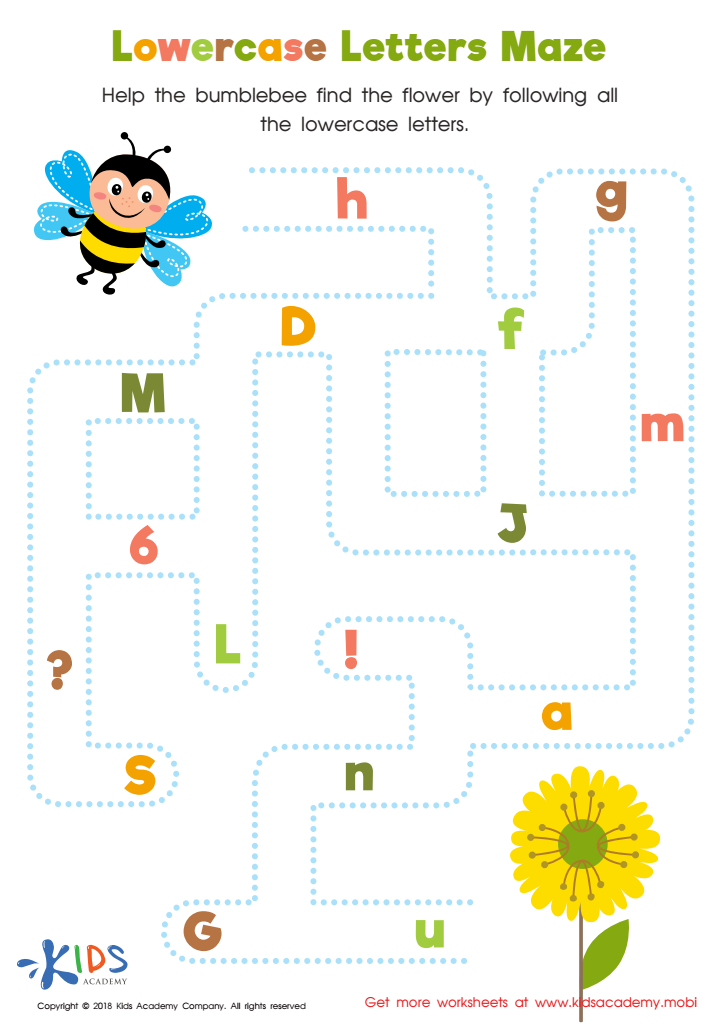

Lowercase Letters Maze Worksheet
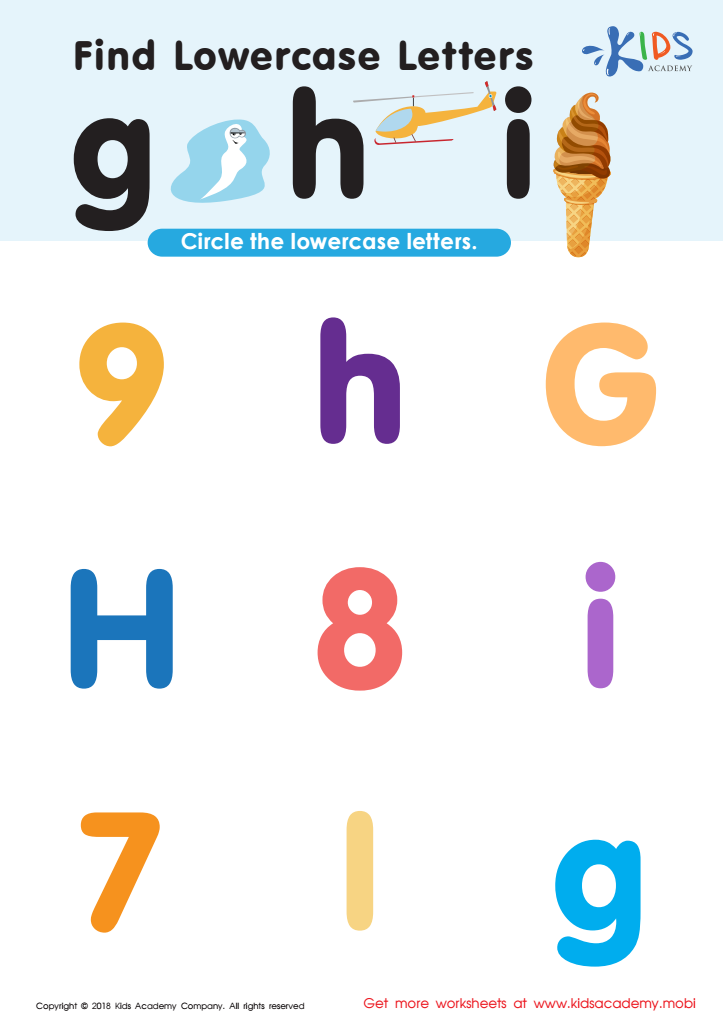

Find Lowercase Letters g h i Worksheet
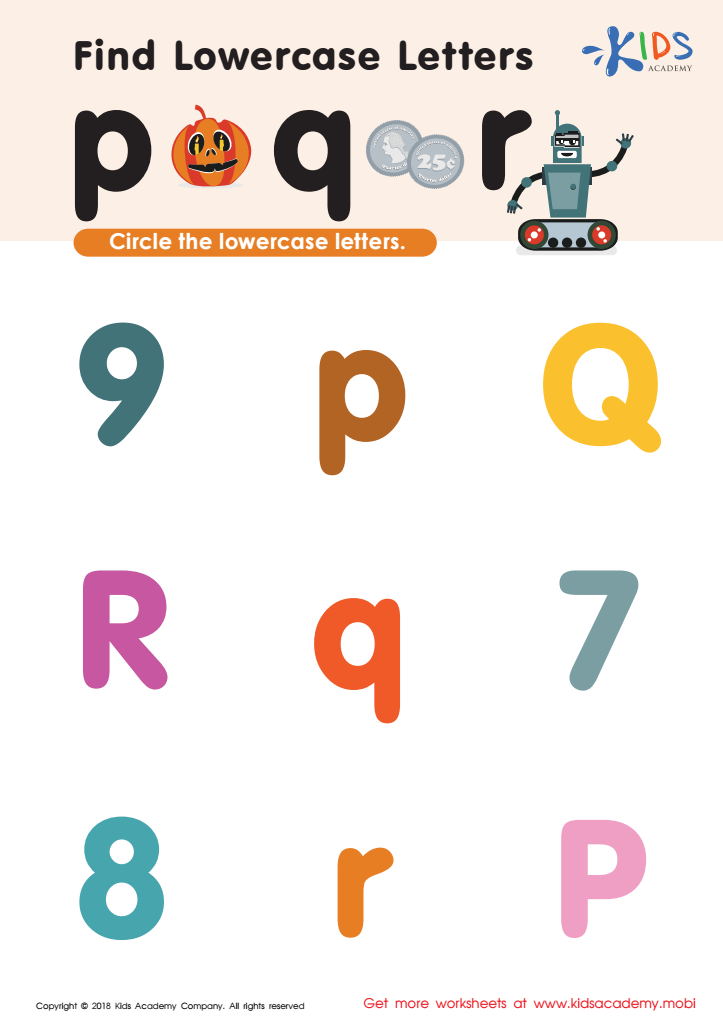

Find lowercase Letters p q r Worksheet
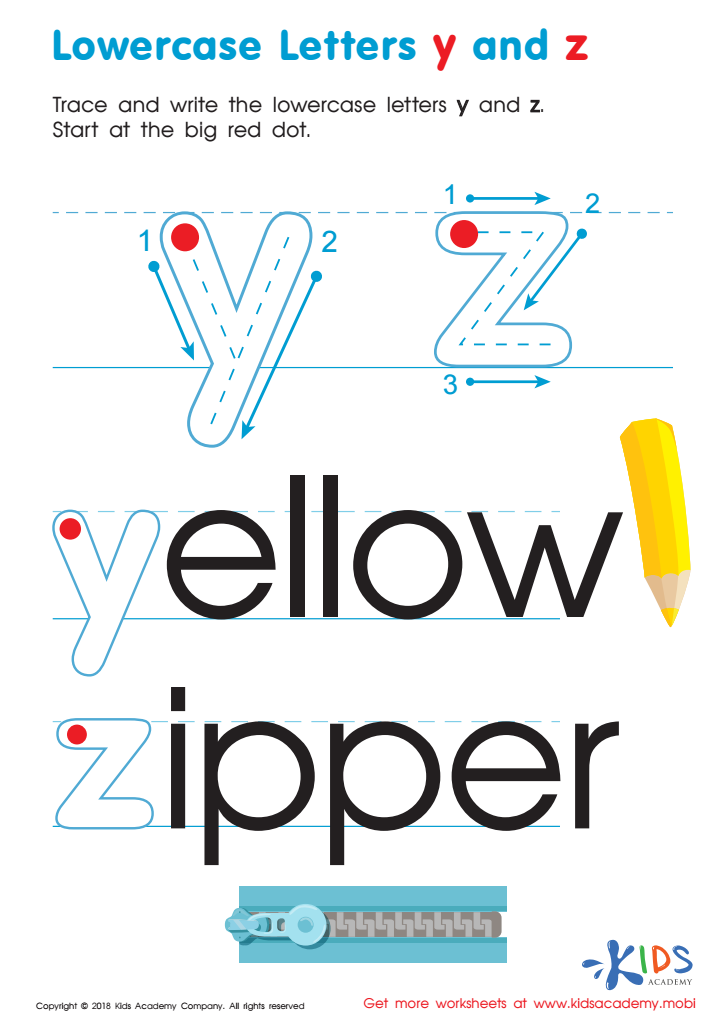

Lowercase Letters y z Worksheet
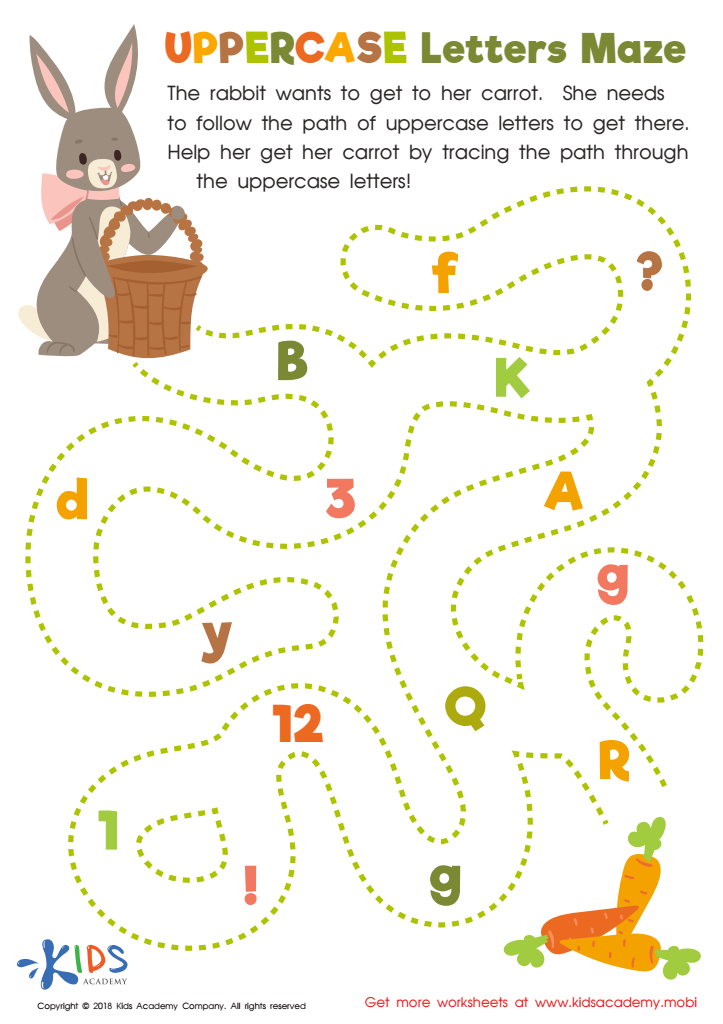

Uppercase Letters Maze Worksheet
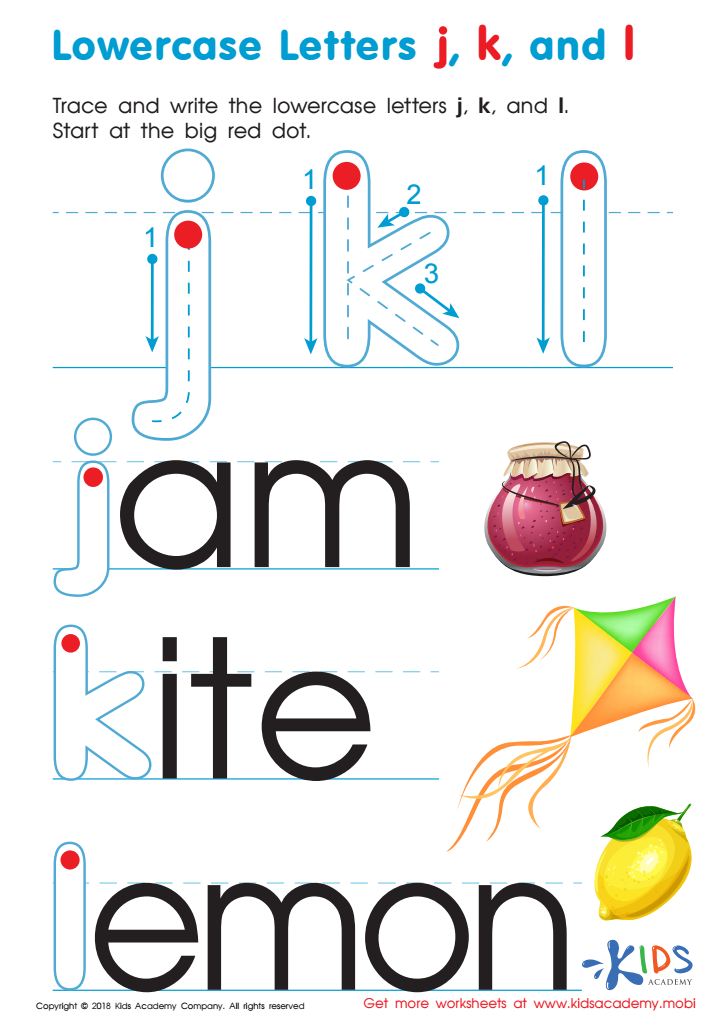

Lowercase Letters j k l Worksheet
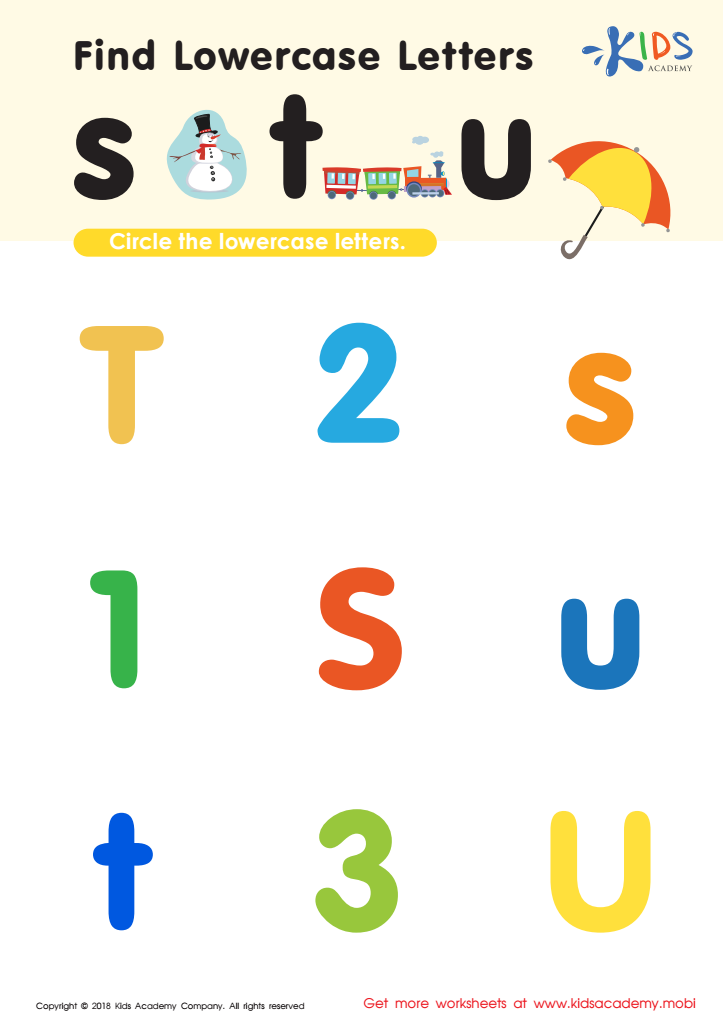

Find lowercase Letters s t u Worksheet
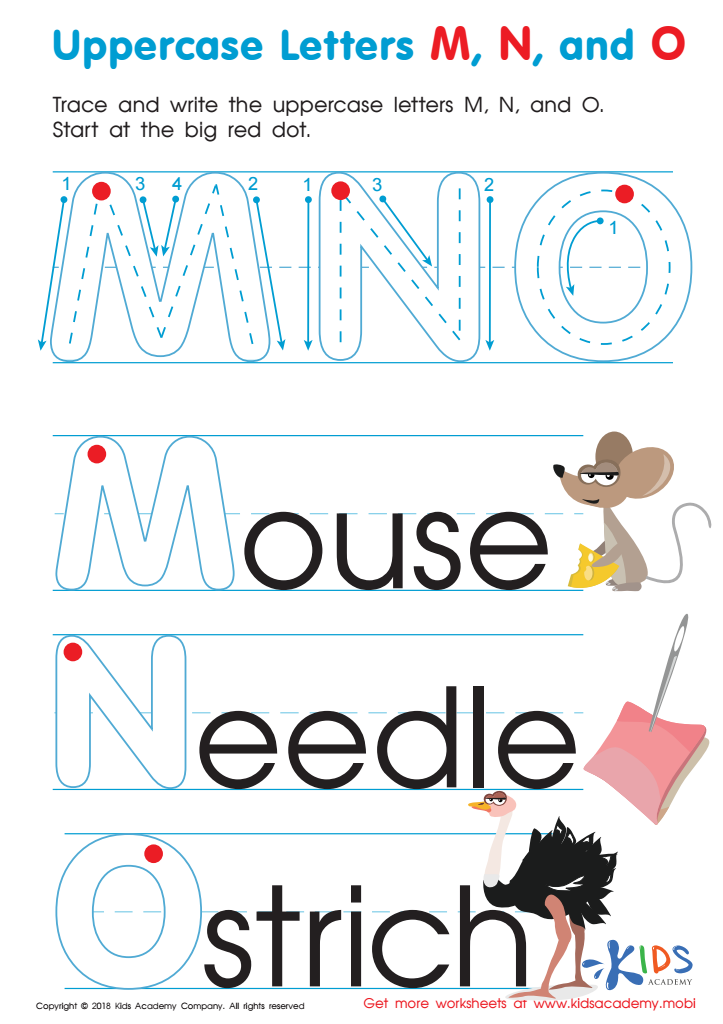

Uppercase Letters M, N, and O Worksheet
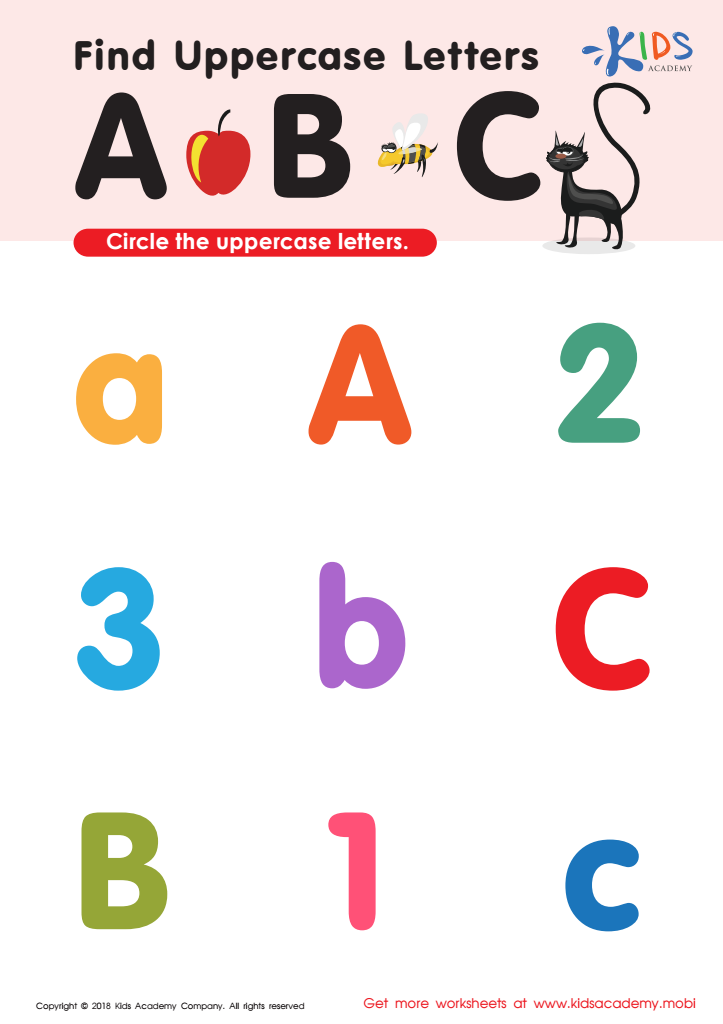

Find Uppercase Letters A, B, and C Worksheet
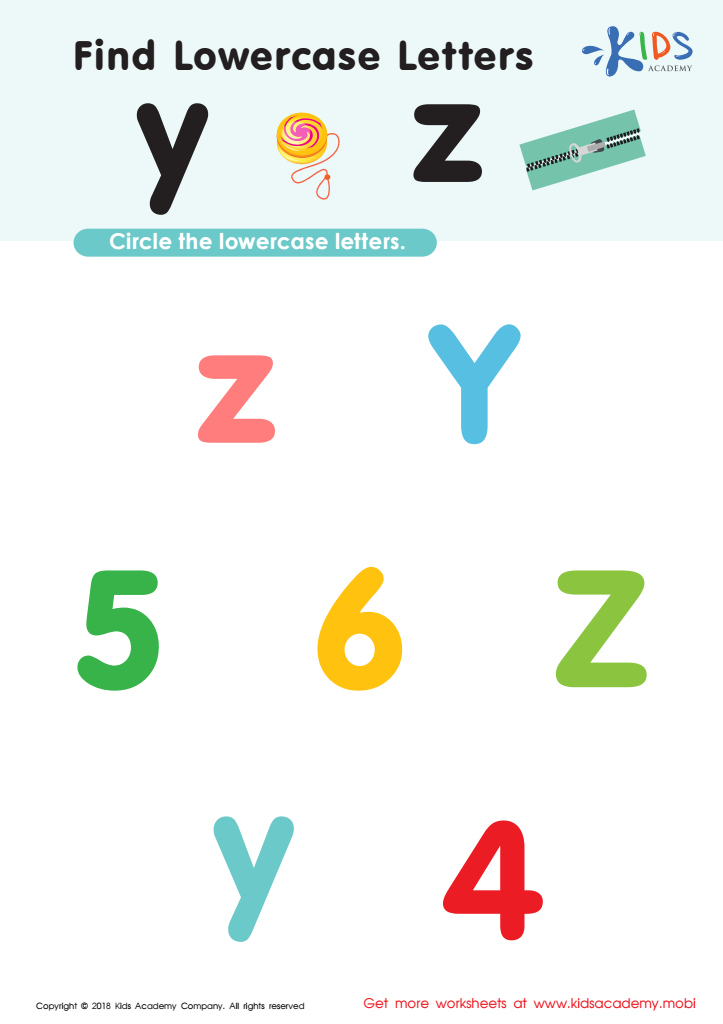

Find Lowercase Letters y z Worksheet
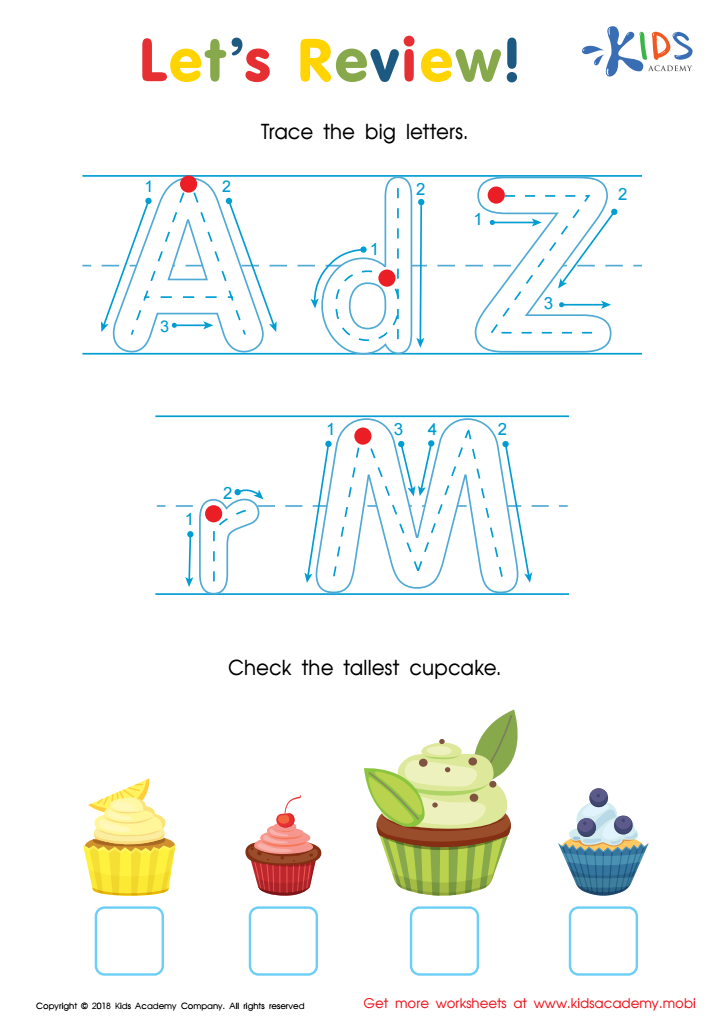

Let's Review! Big Letters Worksheet
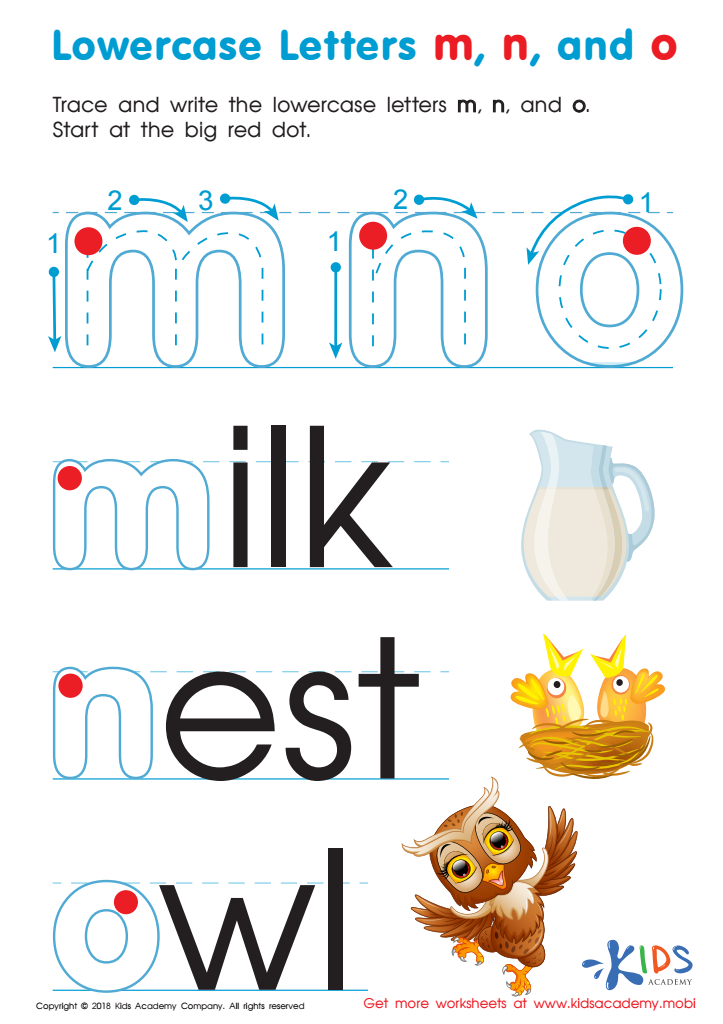

Lowercase Letters m n o Worksheet
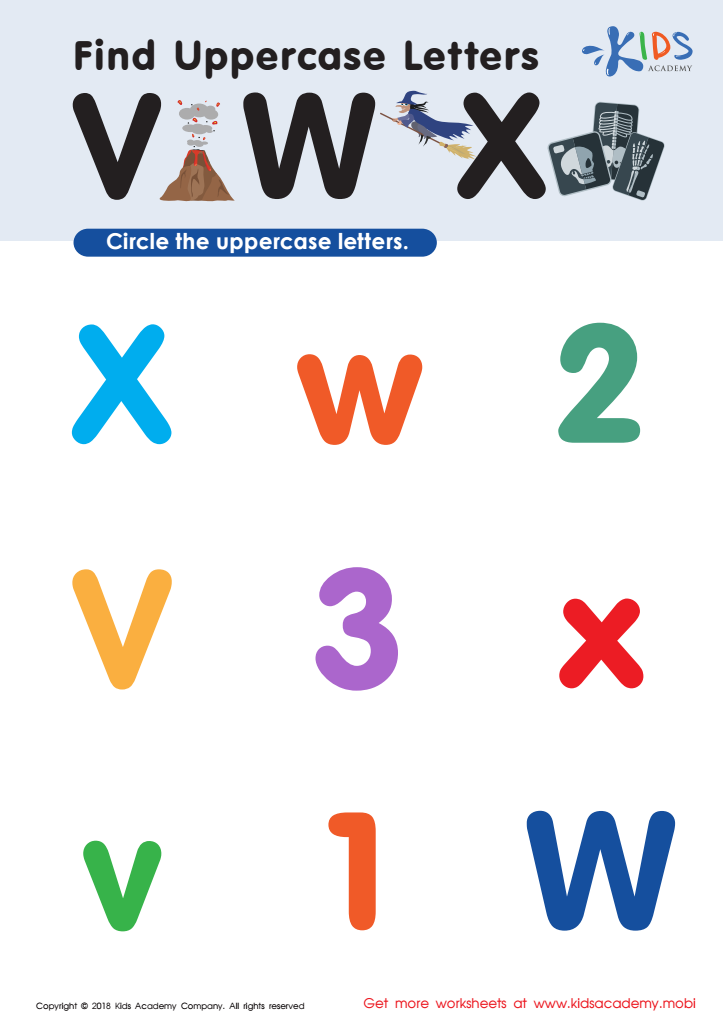

Find Uppercase Letters V, W, X Worksheet
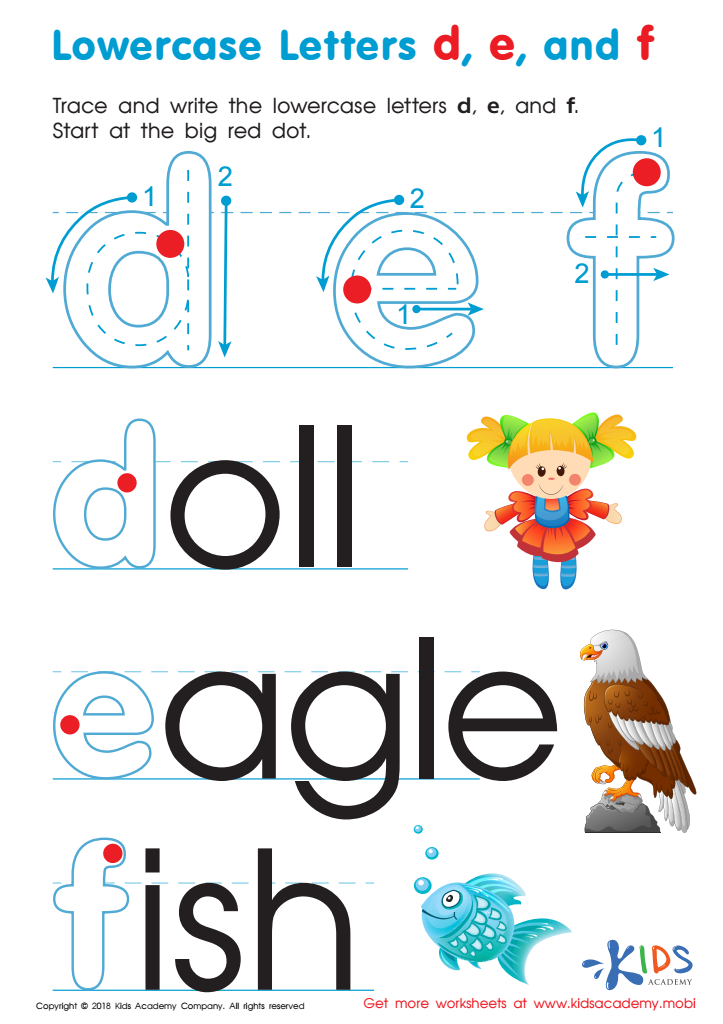

Lowercase Letters d e f Worksheet
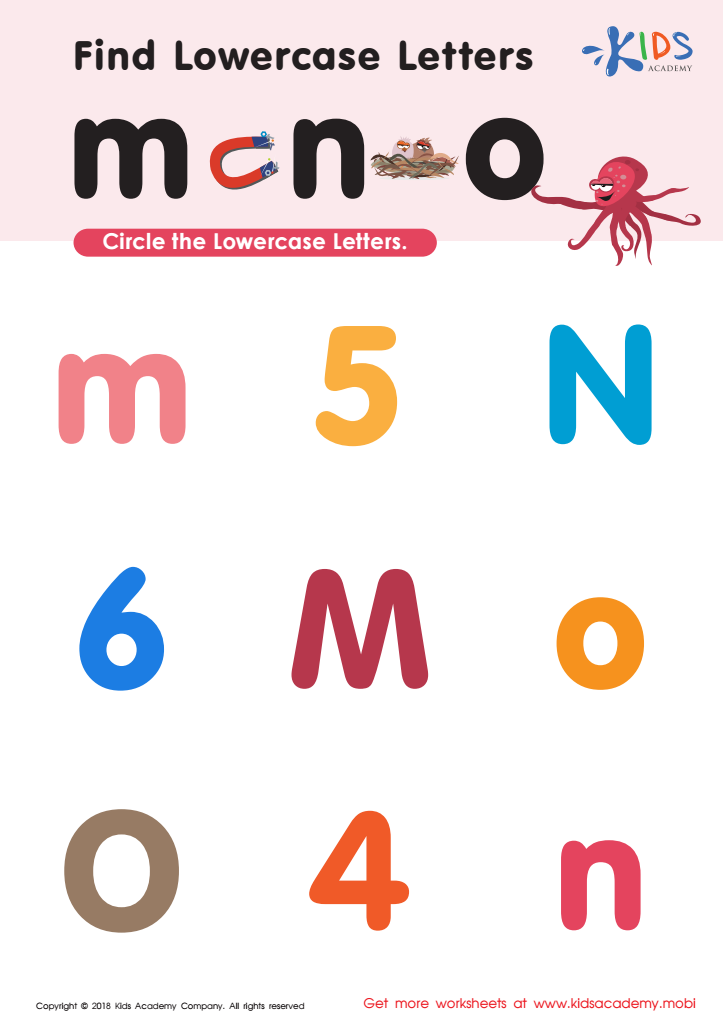

Find Lowercase Letters m n o Worksheet
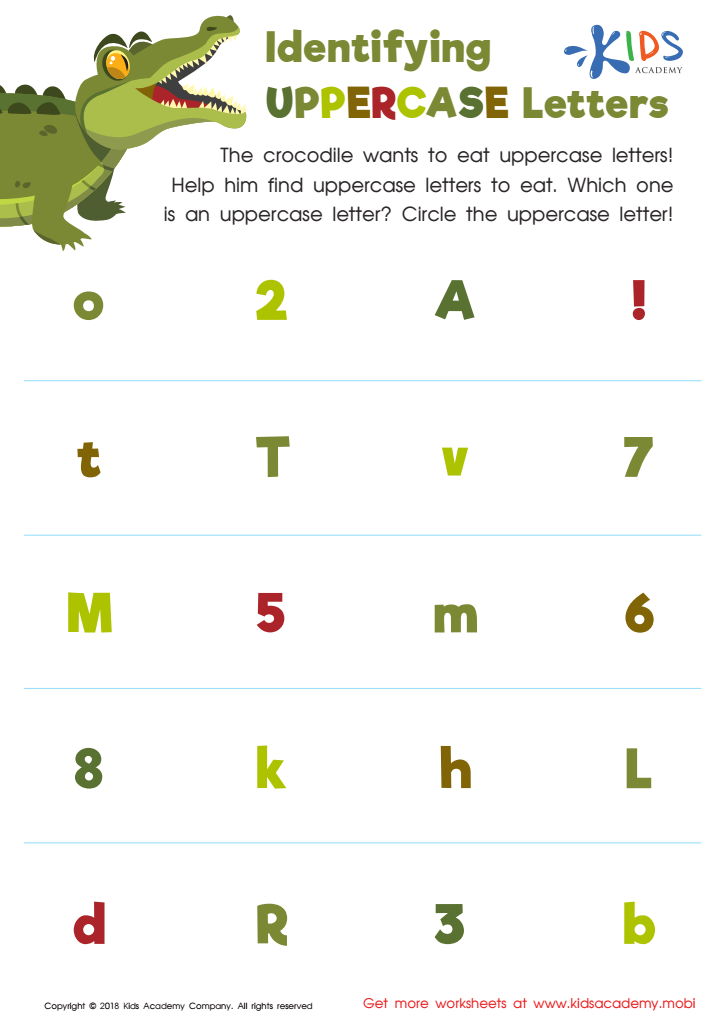

Identifying Uppercase Letters Worksheet
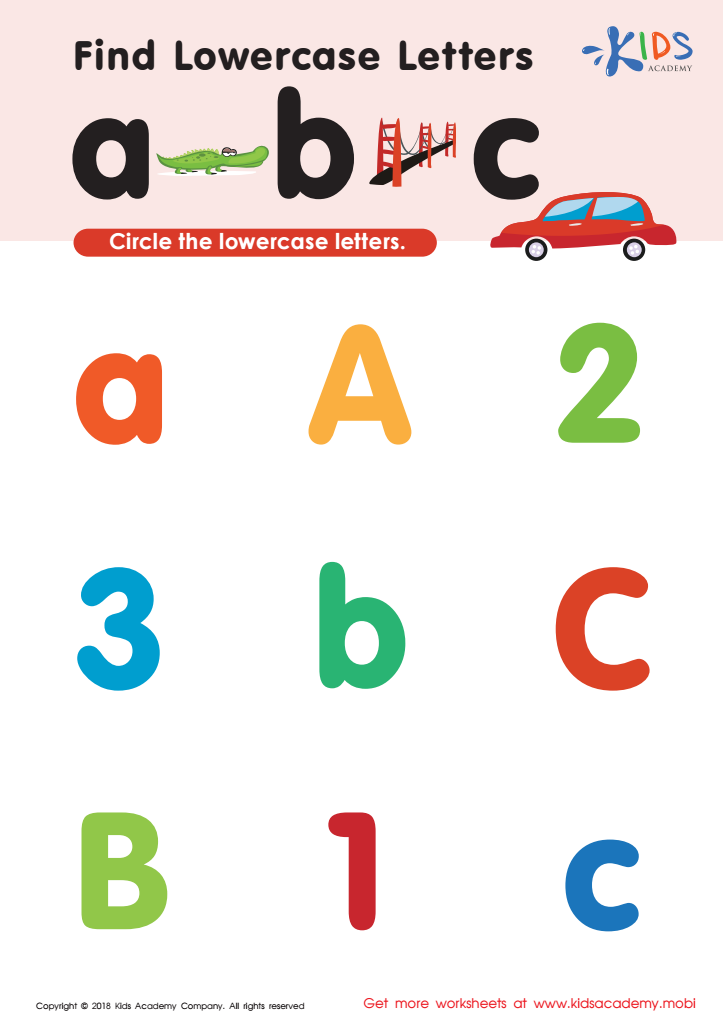

Find lowercase letters a b c Worksheet
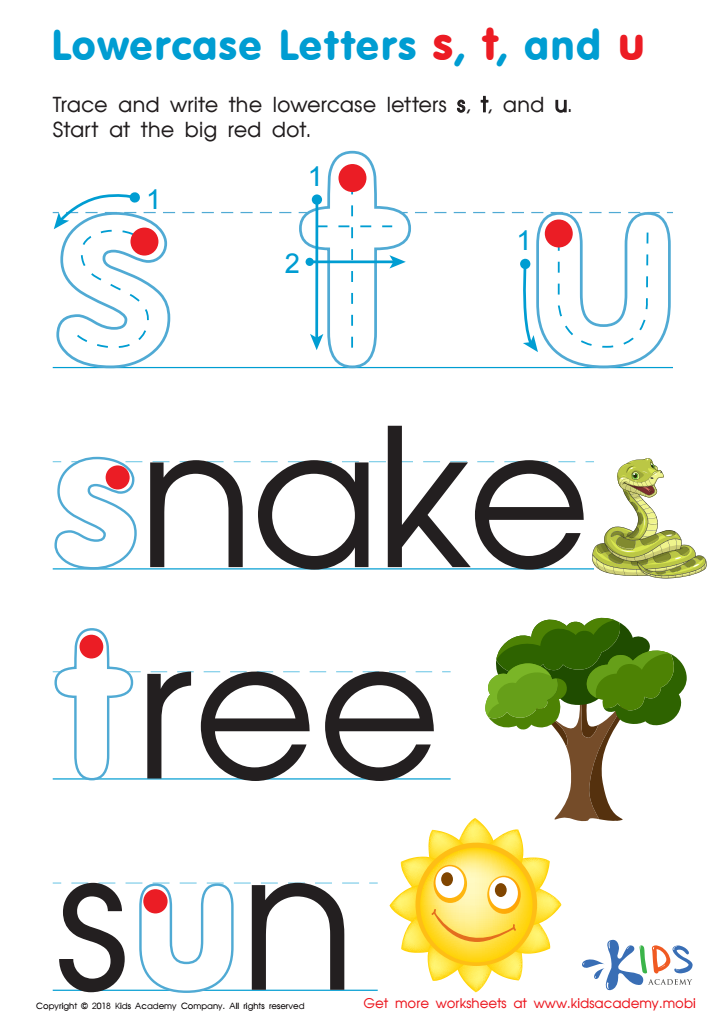

Lowercase Letters s t u Worksheet
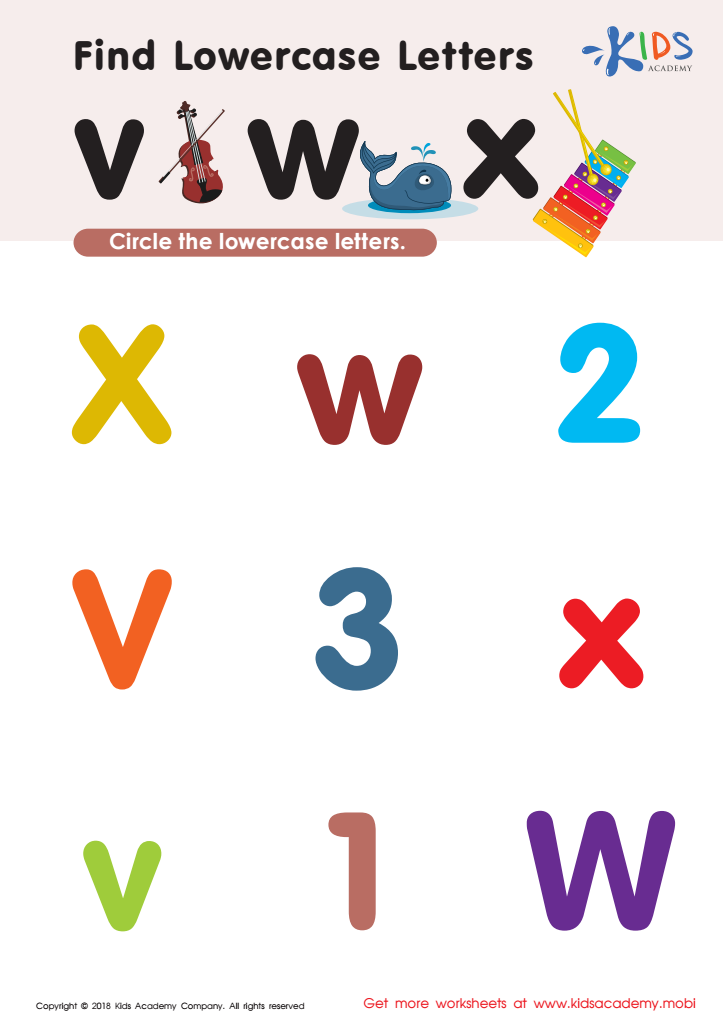

Find Lowercase Letters v w x Worksheet
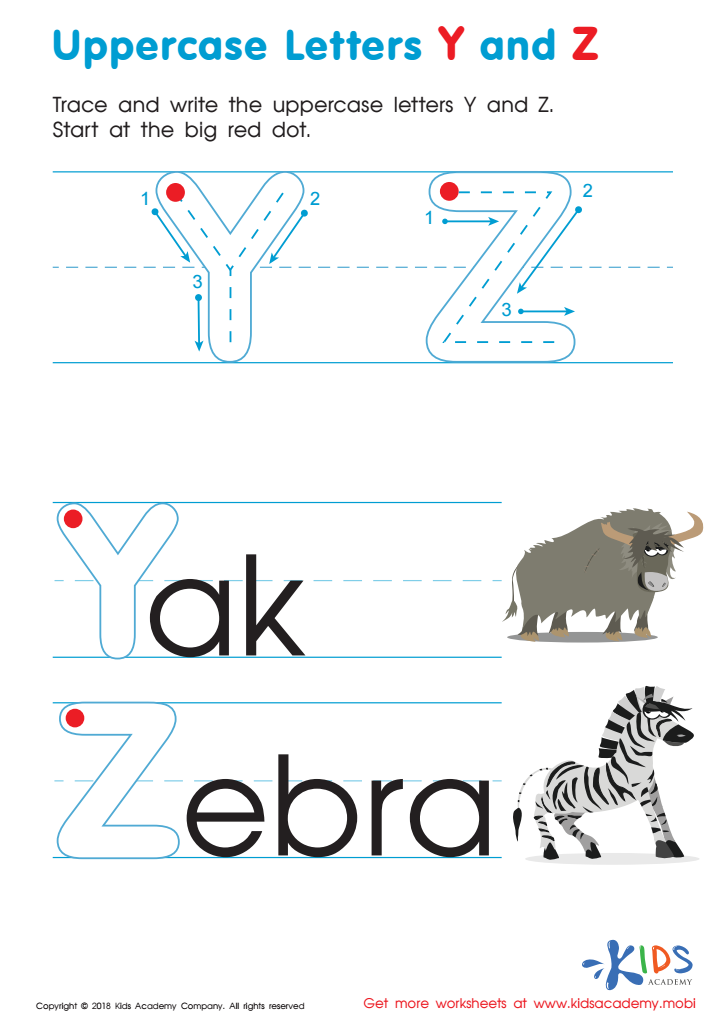

Uppercase Letters Y Z Worksheet
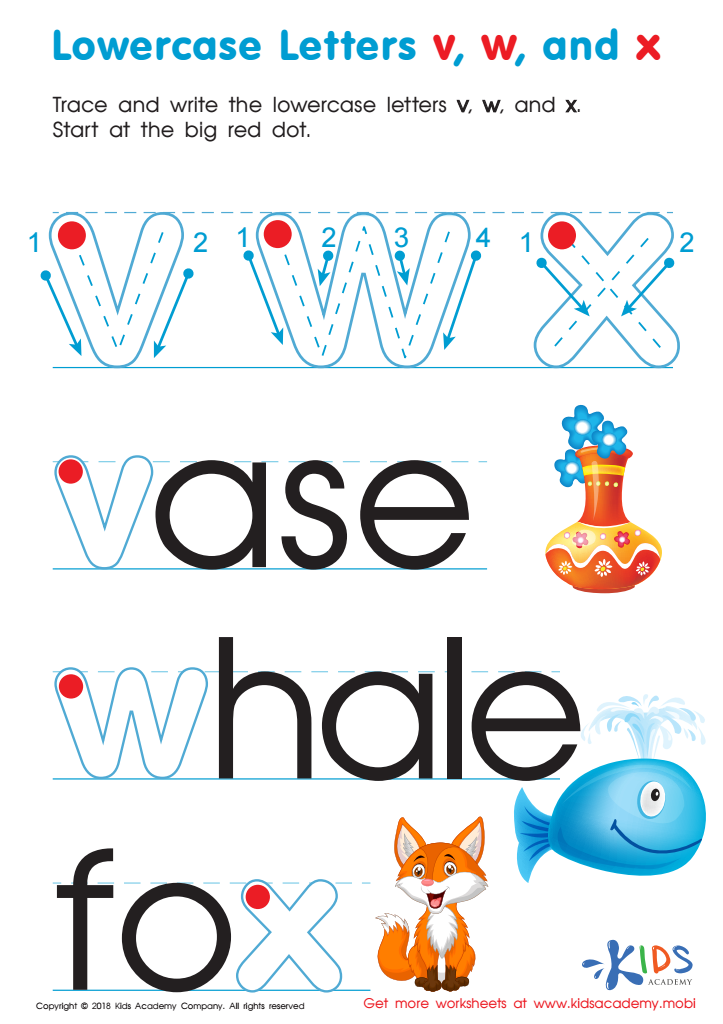

Lowercase Letters v w x Worksheet
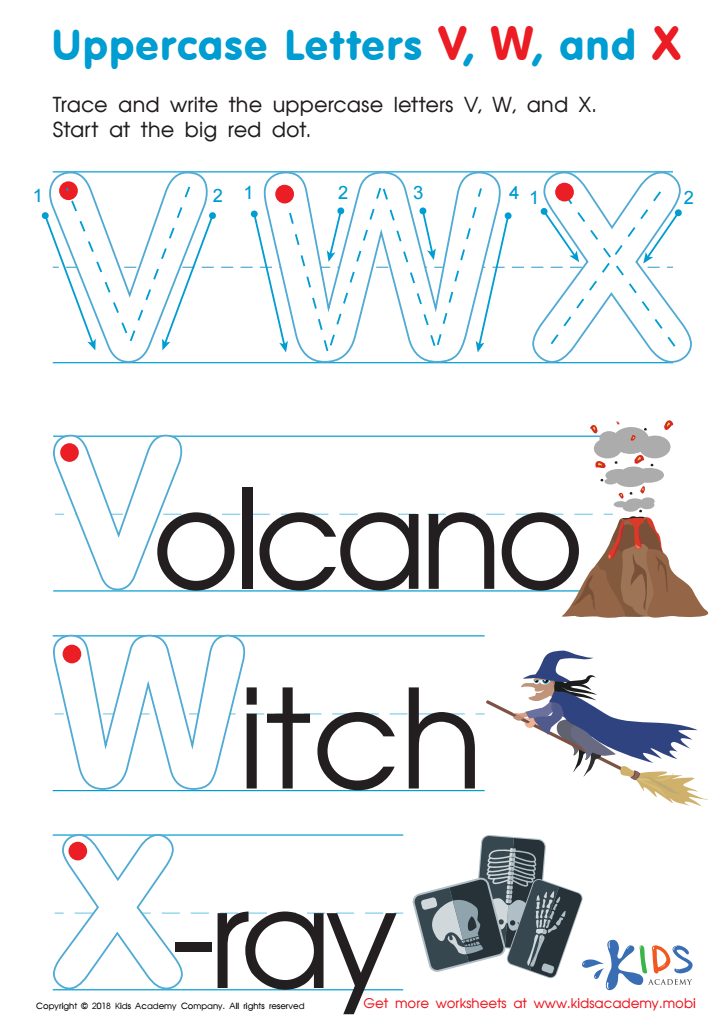

Uppercase Letters V, W, and X Worksheet
Fine motor skills are crucial for young children, especially during the ages of 3-4, when they are beginning to develop foundational abilities that will pave the way for future academic and life success. Parents and teachers should prioritize helping children master normal uppercase and lowercase letters within this critical period for several reasons.
Firstly, fine motor skills, which involve the coordination of small muscles in the hands and fingers, are essential for writing. By practicing the correct formation of letters, children enhance their hand-eye coordination and dexterity, which facilitate everyday tasks such as buttoning clothes, using utensils, and, importantly, writing legibly and efficiently. If children struggle with these fundamental skills, they may face challenges in more advanced writing and drawing exercises, potentially leading to frustration and decreased self-esteem.
Additionally, learning to recognize and write uppercase and lowercase letters contributes to literacy development. Mastery of these letters helps children understand the alphabetic principle, improving their ability to decode words, read fluently, and comprehend text. This literacy foundation is critical for academic success as reading and writing activities will be ubiquitous in their educational journey.
Moreover, engaging in activities that improve fine motor skills, like tracing or drawing letters, supports cognitive development by enhancing memory, concentration, and problem-solving skills. Therefore, fostering fine motor skills and letter knowledge in 3-4-year-olds sets the stage for holistic development, making it a vital component of early childhood education.
 Assign to My Students
Assign to My Students












